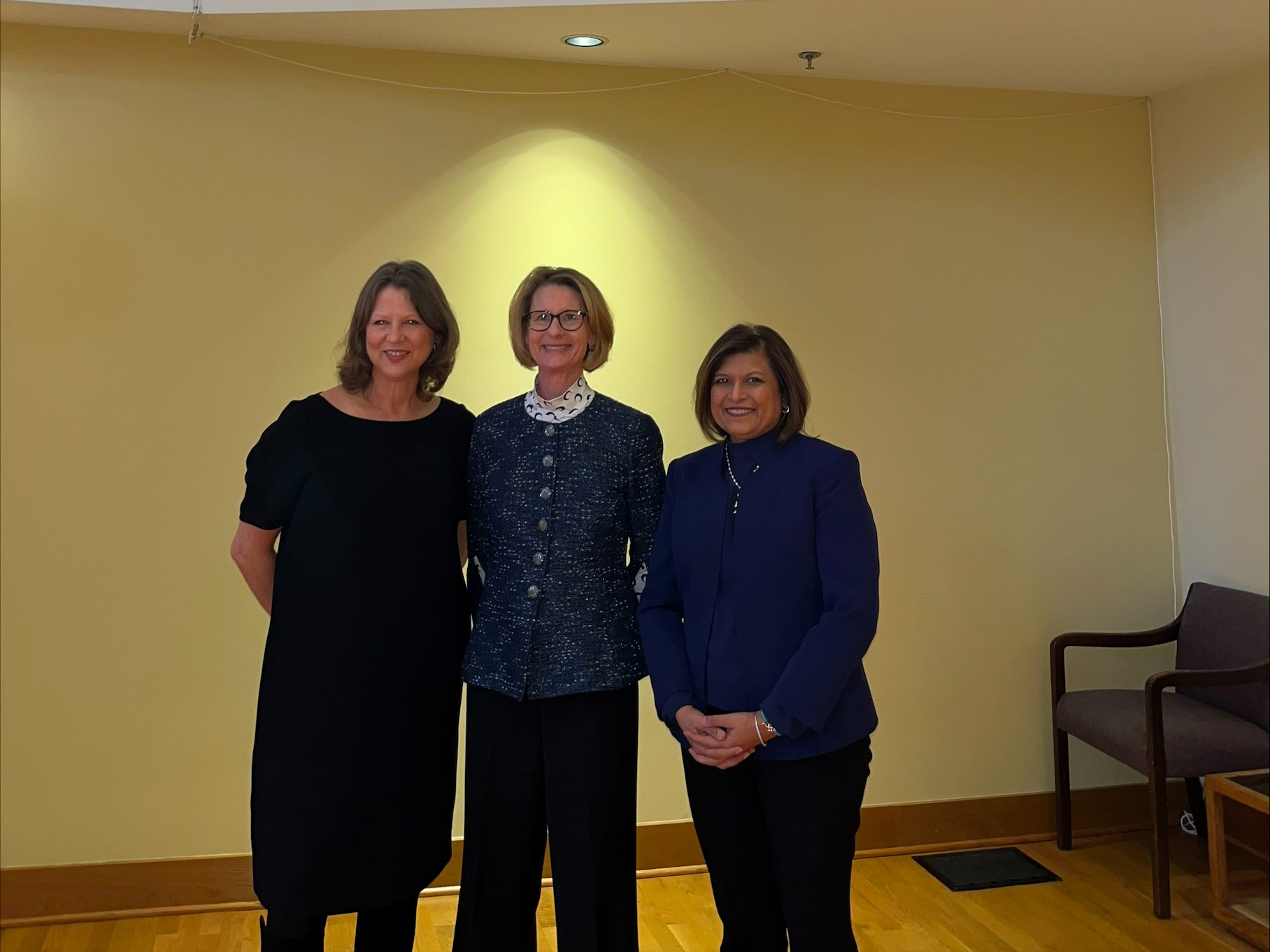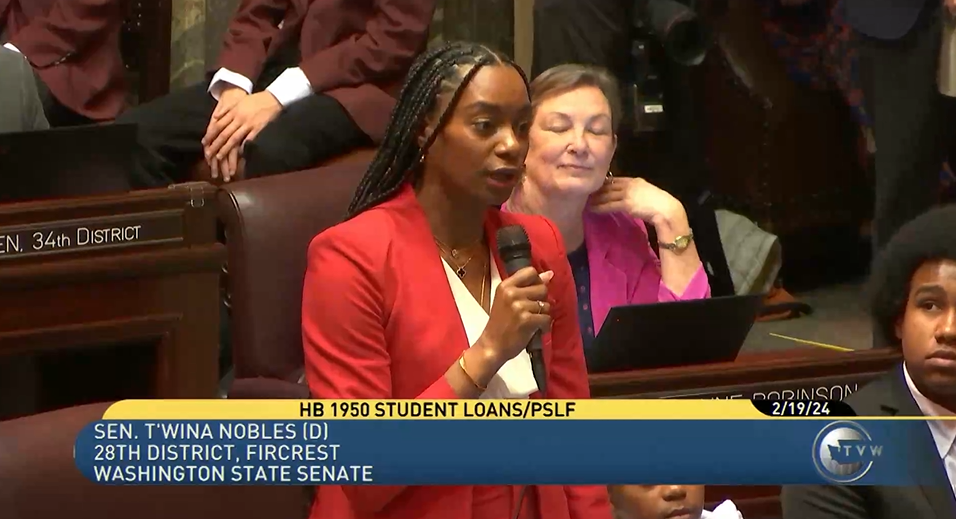Dear Neighbors,
We live in a diverse community with many voices and experiences, and this enriches my legislative work. I am proud to be the first elected Indian American woman in the most diverse House chamber in Washington history.
I recognize the value of having different voices enrich our public discourse, as they resonate with diverse stakeholders and therefore influence policy development across our entire community. Recently, our Indian-American community was shaken by the tragic death of Jaahnavi Kandula, a young student from India, who was killed by an officer driving 74 mph in a dense urban neighborhood on his way to a call. The incident was compounded by subsequent callous remarks that minimized the loss of a community member, and eroded faith in the impartiality of law enforcement personnel.
Like many in the Indo-American community, I was also young immigrant and student when I arrived in Seattle to study at the University of Washington in 1988, so this tragedy hit close to home. As a legislator, I look forward to continuing to work on policy to rebuild trust and support police services that we all value and rely upon.
The legislature has prioritized major police reforms that improve accountability and transparency in police practices and have expanded efforts to address pedestrian safety. Information on these efforts is included in this update and I will continue to provide additional updates in a future newsletter. As we all know, community safety, accountability, and support for responsible public safety are needed in balance and impact all of us.
Prioritizing Pedestrian Safety
King County, especially Seattle, faces a rise in pedestrian and cyclist fatalities. This alarming trend demands improved safety measures, particularly at the state level. The data shows disproportionate deaths in disadvantaged areas and highlights the crucial role of reduced speed limits, with fatalities doubling at 30 mph compared to 20 mph.
Recent tragedies such as the death of Jaahnavi Kandula underscore the urgency of these policies. Proposed bills like HB 1582 and investments in speed safety cameras and for bicycle/pedestrian projects are positive steps, but more is needed.
Moving forward, Washington needs to:
- Review laws governing excessive speeds for emergency vehicles.
- Provide guidance to municipalities for redesigning streets: lower speed limits, reduce lane numbers, and improve crosswalk signals.
- Invest in marked crosswalks with clear signage, signage, and flashing beacons.
Prioritizing pedestrian safety isn’t just about saving lives; it’s about creating healthier, more vibrant communities. This is a strategic investment in Washington’s well-being and economic vitality. Let’s work together to make our streets safer and accessible for everyone.
Community Safety
I am proud that our local law enforcement in the 48th district has worked to continuously build higher standards and to engage with community. And in recent years, our state has also made significant strides in ensuring public safety while addressing fairness and accountability. Recent legislative efforts have focused on the following key areas including:
- Promoting representative policing to support the development of diverse police forces that better represent the communities they serve. Initiatives such as regional police academies and diversifying recruitment within Washington State Patrol represent meaningful progress down this path. Additionally, mental health supports for first responders and flexible work schedules will assist with the recruitment and retention of an inclusive police force.
- Ensuring accountability: New legislation prohibits harmful police conduct by clarifying police use of force policy, establishing less-lethal alternatives, and allowing an independent body to investigate complaints creating a neutral forum for addressing concerns.
- Prioritizing de-escalation: Through training and policy changes, we’re emphasizing de-escalation tactics to minimize the use of force and prioritize peaceful resolutions. Current bipartisan legislation like Senate Bill 6009 would build on this work by banning the dehumanizing practice of hogtying.
These efforts are backed by substantial investments in law enforcement in the 2021-23 biennial budget, 2022 supplemental budget, and 2023-25 biennial budget. We’ve allocated funding for recruitment, training, officer well-being, and alternative response programs like crisis intervention teams.
Through continued collaboration, I remain committed to creating a safer, fairer, and more equitable future for all.
Committee Update
Over the past month, both chambers of the Legislature have been diligently reviewing bills in committee hearings. As Chair of the Postsecondary Education & Workforce Development (PEW) Committee, I am pleased to provide an update on the Senate’s efforts to address achievement gaps and disparities in higher education and workforce development:
- Senate Bill 5815 establishes the Physician Assistant Compact, enhancing healthcare access through telehealth options for rural, underserved, and urban communities.
- Senate Bill 5904 aims to align financial eligibility for federal and state aid programs.
- Senate Bill 5953 supports reentry and reduced recidivism by allowing incarcerated individuals to access federal and state financial aid grants for postsecondary education programs.
- Senate Bill 6296 fosters collaboration to create more retail career opportunities through short-term certificate programs, leading to higher pay and promotions for employees.
I am proud to announce that the Senate has unanimously passed House Bill 1950, along with House Bills 2112 (concerning opioid and fentanyl prevention education) and 2214. I extend my appreciation to Chair Nobles for her remarks on passage of HB 1950, and her support and advocacy on these important bills.
Town Hall Recap
As we approach the end of the 2024 legislative session, there remains much work to be done. I extend my gratitude to all who have actively participated in civic engagement, particularly those who joined Rep. Walen, Senator Kuderer, and me at our town hall on February 17th.

Your input on various issues such as affordable housing, student loan debt, medical debt, rental assistance, artificial intelligence, and support for families on fixed incomes has been invaluable. I remain excited to connect with you more once the legislative session concludes in March.
Looking Ahead
With three budgets passed through the House, our focus now turns to reaching a compromise with the Senate. Our budget team is diligently working to deliver a final package that reflects our shared values and invests in the people of Washington. I look forward to sharing the results of this important work.
Thank you for your engagement with my office, and for all you do.
In Service,

State Representative Vandana Slatter

